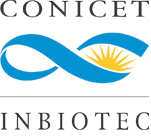Research topic Frontiers in Plant Science
Balancing C/N Interplay, Ros Status, and Energy Homeostasis Under Abiotic Stress in Photosynthetic Organisms
Editors:
Giselle Martínez-Noël
CONICET Instituto de Investigaciones en Biodiversidad y Biotecnología (INBIOTEC)
Mar del Plata, Argentina
Noelia Foresi
CONICET Mar del Plata
Mar del Plata, Argentina
Christian Meyer
INRA UMR1318 Institut Jean Pierre Bourgin
Versailles, France
Elina Welchen
National University of Littoral
Santa Fe, Argentina
Marianela Soledad Rodriguez
National Institute of Agricultural Technology (INTA)
Cordoba, Argentina

Photosynthetic organisms constantly perceive changes in nutrient availability, and the ratio of C and N, especially, has a crucial signaling role in metabolism, growth, and development. Under environmental stress, the delicate equilibrium in the C/N balance is altered. It directly affects the increase of reactive oxygen species (ROS), reactive nitrogen species (RNS) and energy homeostasis, and conversely, redox status controls N metabolism. Thus, accurate sensing and signaling of C/N ratio and reactive molecule levels in the face of stress are essential to achieve cellular homeostasis and, ultimately, cell/organism survival.
From this, it becomes clear that this topic is not only significant but also highly complex. Uncovering the interplay between these players and the key sensors and transducers that integrate and dynamically, yet tightly, coordinate plant responses to adapt to unfavorable conditions is a challenging task. Although central hubs, such as TOR and SnRK1 kinases or the HY5 transcription factor have been described, there are still many gaps to understand the complex network of interconnected regulations that ensure global equilibrium. Indeed, further work is required to resolve the intricate relationship between C and N metabolism and redox homeostasis in photosynthetic organisms.
The main goal of this Research Topic is to gain insight into the importance of C and N metabolism and balance sensing during the stress responses in photosynthetic organisms and its transduction to key integrators that maintain energy homeostasis. Lacking knowledge of the role of these central topics is a serious limitation to our understanding of stress response in photosynthetic organisms. An extremely important topic that must be urgently addressed is the misleading information due to underestimating subcellular locations and tissue- and organ-specific expression of the sensor/tranducers of C/N balance under stressful conditions. Moreover, contradictory data can be found in the literature, probably due to the above limitations. Besides, the roles of retrograde signaling should be addressed.
We want to underscore the pivotal role of the C to N sensing mechanisms that allow photosynthetic organisms to efficiently modulate their transport and metabolism depending on their cell energy status. Undoubtedly, understanding those molecular mechanisms and their dynamic and fine-tuned regulation will improve biomass yield and stress resistance through the use of new technologies such as CRISPR-Cas9.
We welcome submissions on the following, but not limited to, topics:
- Sugar and Nitrogen sensing under environmental stress.
- Rapid readjusting of gene expression and metabolism in stressful conditions.
- Adjustment of C/N balance in the plant stress response.
- Role of reactive oxygen species (ROS) and reactive nitrogen species (RNS) and cellular redox state under unfavorable conditions.
- The interplay between metabolism and selective organelle autophagy under stress.
- Importance of subcellular localization, tissue-organ and developmental stage-specific expression of C/N sensor/transducers, key transporters and transcription factors to understand processes and their regulation.
- Role of the key kinases TOR and SnRK in regulating cellular homeostasis and growth under unfavorable conditions.
- Importance of PII protein under environmental stress.
- The description of new proteins or mechanisms involved in C/N homeostasis and energy management.
- New technologies of genome editing to improve NUE, CRISPR-Cas9.
Disclaimer: We acknowledge that Dr. Christian Meyer receives funding from the company Fertinagro through a partnership. But, we hereby state publicly that Fertinagro has had no editorial input in articles included in this Research Topic, thus ensuring that all aspects of this Research Topic are evaluated objectively, and unbiased by any specific policy or opinion of Fertinagro. The other Topic Editors declare no competing interests with regard to the Research Topic subject.

